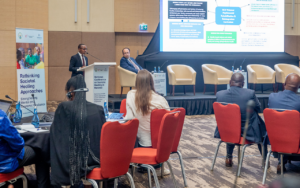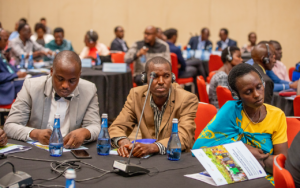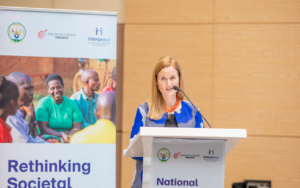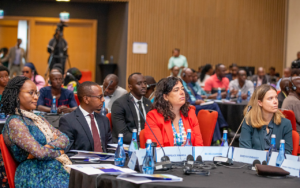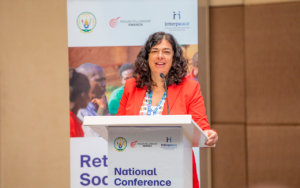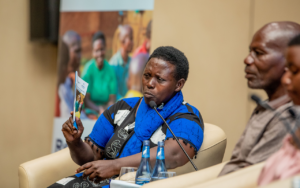How a holistic societal healing programme has strengthened mental resilience, reconciliation, and livelihoods in Rwanda
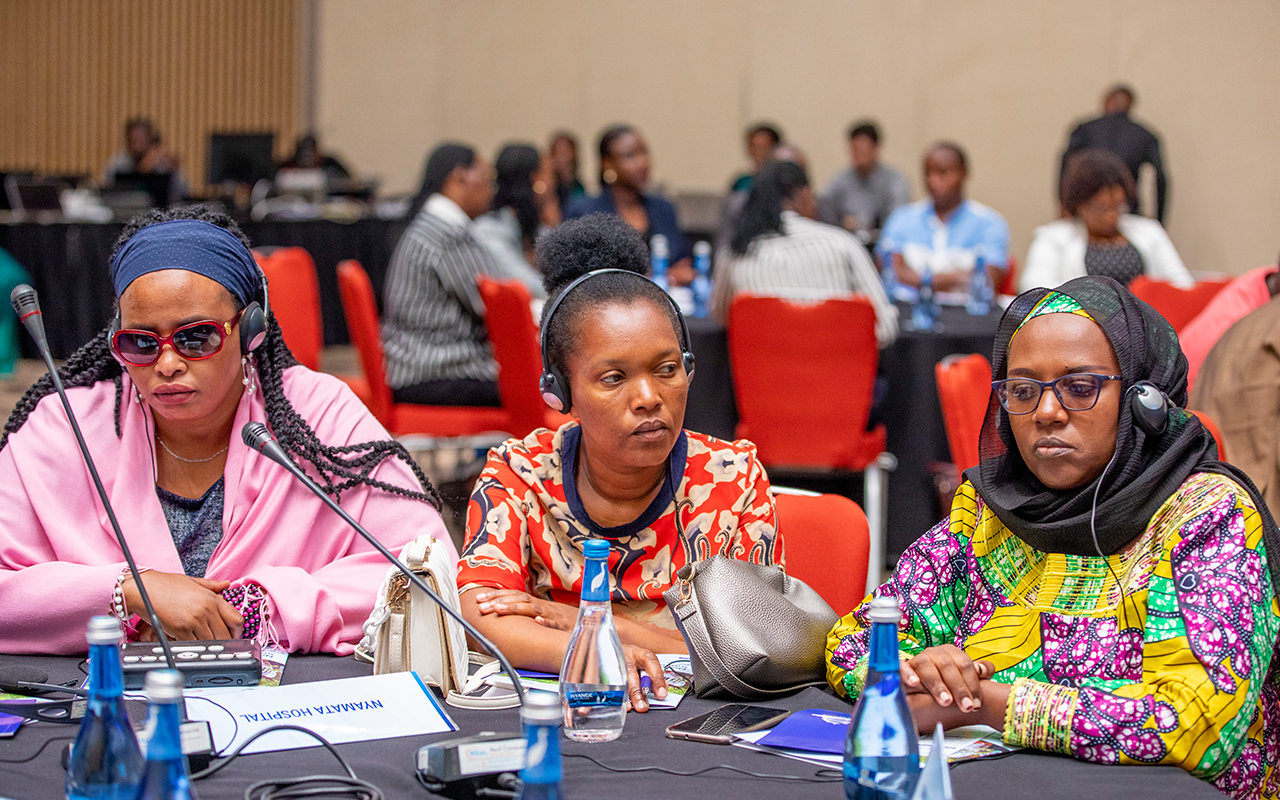
The 1994 Genocide against the Tutsi in Rwanda left the country with tremendous consequences for mental health, social cohesion, reconciliation, and socioeconomic development. The Government of Rwanda and its partners have made efforts to tackle these persistent challenges, nearly 29 years after the Genocide.
To support the government’s efforts, Interpeace introduced a societal healing programme that uses a holistic approach to address mental health, foster social cohesion and stimulate the livelihoods of individuals and communities. The holistic programme, titled “Reinforcing community capacity for social cohesion and reconciliation through societal trauma healing,” was piloted in Bugesera District, Eastern Province of Rwanda, from October 2020 to September 2022, with funding from the European Union (EU).
During a high-level national conference organised on 9 March 2023 to share the outcomes, challenges and lessons identified from the pilot phase’s implementation, it was revealed that the programme has demonstrated that a holistic societal healing approach in the context of Rwanda is more relevant than ever, given the socio-political transition from reconciliation to community resilience, 29 years after the Genocide.
The programme utilised structured and contextualised group-based psychological interventions (protocols for mental health and psychosocial support) to create and facilitate healing spaces in communities across Bugesera District. The healing spaces contributed to reducing trauma/psychological wounds, increasing the sense of safety, trust, cohesion, and reconciliation among Genocide survivors, Genocide perpetrators and their relatives. They also stimulated intergenerational dialogues between Genocide survivors, Genocide perpetrators and their children, mostly those born during or after the Genocide. Additionally, the programme addressed intergenerational transmission of genocide legacies, marital conflicts, improved intrafamily communication and cohesiveness, and strengthened individual’s mental resilience.
Graduates of the healing spaces acquired entrepreneurship and financial skills, enabling them to initiate collaborative livelihood initiatives and further cement social relations among themselves.
The programme has also contributed to improving the prisoner rehabilitation and reintegration process. It established healing spaces in Bugesera prison, providing psychosocial support to those about to be released and facilitating their acquisition of hands-on skills to ease their social reintegration.
In her remarks, Interpeace’s Senior Director of Programmes, Renée Larivière, noted that the pilot programme was initiated in line with the organisation’s strategic objective of enhancing resilience for peace. She highlighted the fact that the pilot phase achieved greater results than initially expected. “What started as a modest initiative to develop new and innovative ways to build lasting peace has taken us on an extraordinary journey to achieve more holistic change,” she noted.
The conference, which incorporated panel discussions, testimonies, and audiovisual content, served as an opportunity to familiarise policymakers, societal healing and peacebuilding actors, government officials, the media, academia, and others with the programme’s approaches to stir up debate around societal trauma healing approaches in Rwanda.
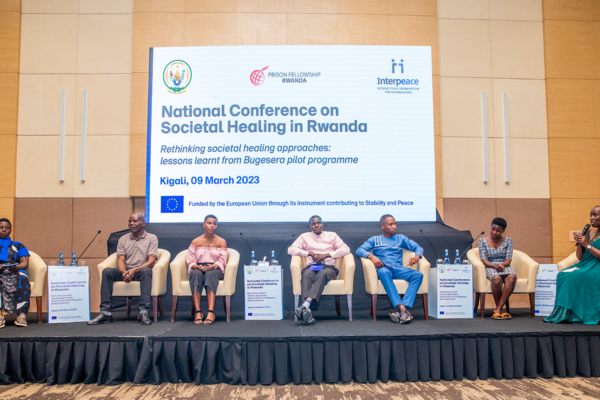

Participants commended the programme's achievements and its contribution to building a Rwandan society that is mentally, socially, and economically resilient, peaceful, and inclusive. To sustain the programme’s grains, most conference participants advocated for the institutionalisation of the tools developed (protocols and curricula) and the implementation of mechanisms to train interested actors in their proper use. One of the participants went further to suggest the implementation of a specific training institution that could utilise these scientific tools to strengthen the capacity of local and regional actors. “I am thankful to Interpeace, which has developed and contextualised those tools. Institutionalising them is the better way to ensure that they have a bigger impact. However, the best way of ensuring their sustainability is to establish a learning institution that can serve to train local actors to implement them and share Rwanda’s experience with other countries facing similar challenges,” suggested Marcelin Sebagabo.
Her Excellency Belén Calvo Uyarra, the Ambassador of the European Union (EU) to Rwanda, reiterated the EU’s support for peacebuilding initiatives in Rwanda. “We have seen how our efforts to promote collective trauma healing in Rwanda through mental health, psychosocial and livelihood support have had a positive impact on communities. We are hearing how former enemies, victims, and perpetrators have come to trust each other again and develop ways to heal the community. The EU will remain a strong partner of Rwanda in areas of reconciliation, peacebuilding, and justice,” she added.
The Permanent Secretary to the Ministry of National Unity and Civic Engagement (MINUMWE), appreciated Interpeace’s holistic and adaptive approach that led to tremendous change at individual, community, and institutional levels. “This adaptive programme management approach sets a good foundation for the sustainability of the results achieved on the ground. The protocols that were developed are in line with our vision to promote standardisation in the societal healing sector, and we hope there will be moments for their institutionalisation where applicable.”
In closing, she expressed her appreciation to the Government of Sweden for providing funding that helped scale up this programme to five more districts with the target of reaching more than 20,000 individuals in the next three years.
